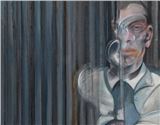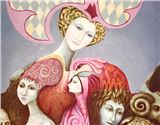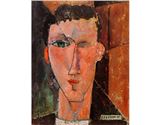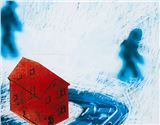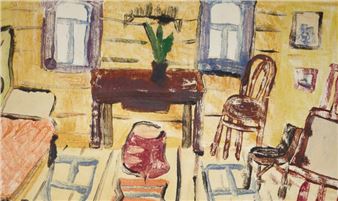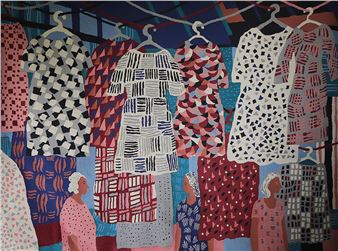Apoc. End Of The World Every Day
Apocalyptic sentiments go hand in hand with any crisis, war, or epidemic. New media have elevated the visibility of such events and enabled large swathes of the audience to follow the developments closely. A recent coinage from the 2020 pandemic year, вҖҳdoomscrollingвҖҷ describes the widespread phenomenon of obsessive reading of negative news online. The introduction of a new term highlights the impact on people that comes from broadcasting of catastrophes and disasters. For a person caught in the middle of events or constantly monitoring them, there is no distinction between the present and the dark past, and there is no way to plan for the future, which can only be imagined. In the early 21st century, the sense of the end of history and вҖңstallingвҖқ in that moment found expression in the hauntological dreams about the foregone potential futures.
The apocalypse now is an intricately staged media show with special effects. Through frequent use, the word is often abbreviated to вҖҳapocвҖҷ. Which sounds not unlike a dull thud, or like a вҖңclapвҖқ вҖ” the word that is, for various reasons, used instead of вҖңexplosionвҖқ nowadays. In the age of euphemisms, apoc is a routinization of apocalypse. Will this situation bestow upon us any new revelations? Other modes of existence to help overcome the hopelessness, the desperation, and the apparent impermanence? Can we expect a rise of neo-Millenarianism? Will we see a new heaven and earth?
Fears, omens, persistence of threat and inevitability, transformation of our relations to time and space вҖ”artists have long been attentive to such triggers of apocalyptic thinking. In 2002, Triumph Gallery presented State of Emergency, a large-scale project reflecting on that particular moment and the post-pandemic world. The new exhibition, Apoc, continues the contemplations on the future and brings together numerous authors who document disasters, formulate various end-of-the-world scenarios, and share their premonitions and revelations.
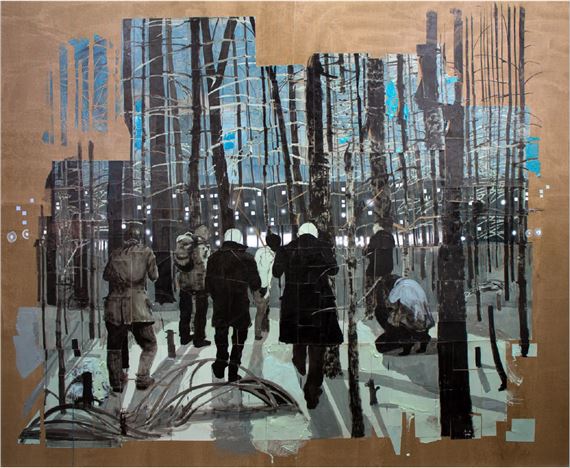
Recommended for you
Apocalyptic sentiments go hand in hand with any crisis, war, or epidemic. New media have elevated the visibility of such events and enabled large swathes of the audience to follow the developments closely. A recent coinage from the 2020 pandemic year, вҖҳdoomscrollingвҖҷ describes the widespread phenomenon of obsessive reading of negative news online. The introduction of a new term highlights the impact on people that comes from broadcasting of catastrophes and disasters. For a person caught in the middle of events or constantly monitoring them, there is no distinction between the present and the dark past, and there is no way to plan for the future, which can only be imagined. In the early 21st century, the sense of the end of history and вҖңstallingвҖқ in that moment found expression in the hauntological dreams about the foregone potential futures.
The apocalypse now is an intricately staged media show with special effects. Through frequent use, the word is often abbreviated to вҖҳapocвҖҷ. Which sounds not unlike a dull thud, or like a вҖңclapвҖқ вҖ” the word that is, for various reasons, used instead of вҖңexplosionвҖқ nowadays. In the age of euphemisms, apoc is a routinization of apocalypse. Will this situation bestow upon us any new revelations? Other modes of existence to help overcome the hopelessness, the desperation, and the apparent impermanence? Can we expect a rise of neo-Millenarianism? Will we see a new heaven and earth?
Fears, omens, persistence of threat and inevitability, transformation of our relations to time and space вҖ”artists have long been attentive to such triggers of apocalyptic thinking. In 2002, Triumph Gallery presented State of Emergency, a large-scale project reflecting on that particular moment and the post-pandemic world. The new exhibition, Apoc, continues the contemplations on the future and brings together numerous authors who document disasters, formulate various end-of-the-world scenarios, and share their premonitions and revelations.
Artists on show
- Alexander Brodsky
- Alexander Dashevskiy
- Alexander Vinogradov
- Alexander Yakut
- Alexandra Nesterkina
- Alexey Bevza
- Anastasia Sukhareva Morozova
- Anna Ivanova
- Anton Kuznetsov
- BlueSoup group
- Daniil Antropov
- Dasha Maltseva
- Dmitry Bulnygin
- Dmitry Kavarga
- Egor Fedorichev
- Ivan Repkin
- Ivan Tuzov
- Konstantin Benkovich
- Lena Vlasova
- Liza Bobkova
- Lyudmila Baronina
- Maria Safronova
- Masha Obukhova
- Mayana Nasybullova
- Nikita Chernoritskiy
- Nikolai Ryndin
- Pavel Pletnev
- Roman Casus
- Roman Mokrov
- Ruslan Polanin
- Slava Nesterov
- Stanislav Shuripa
- Stas Bags
- Taisia Korotkova
- Tanatos Banionis
- Vadim Mikhailov
- Vladimir Abikh
- Vladimir Chernyshev
- Vladimir Dubossarsky
- Vladimir Omutov
- William Larin

 ARTISTS
ARTISTS
